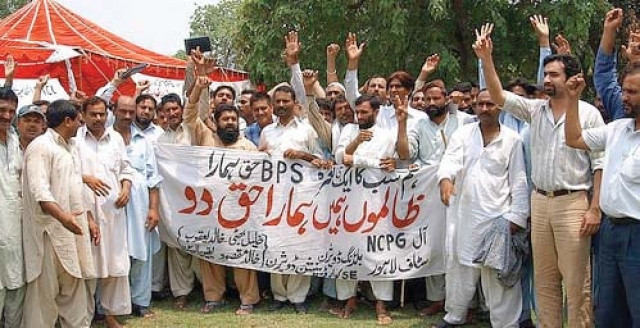Voluntary separation scheme case: SC overturns high court judgments, rules against PTCL employees
SC rules in favour of PTCL, nullifies judgement of Sindh High Court, Peshawar High Court and Lahore High Court.

The apex court nullified the judgment passed by the Sindh High Court, the Peshawar High Court and the Lahore High Court.
Chief Justice Iftikhar Muhammad Chaudhry presided over the three-member bench of the apex court. The judgment was reserved on November 30.
The company introduced a scheme for its employees known as the Voluntary Separation Scheme (VSS), whereby an employee was entitled to receive early retirement benefits on the completion of 20 years of service, in addition to other perks.
The petitioners had appealed to the respective high courts for declaring them eligible for VSS after they had been turned down by PTCL for not possessing the requisite length of service.
The court stated in its judgment, “As to the case of the employees seeking the benefit of VSS, no relief could be granted to them by the high court in view of the non-maintainability of their writ petitions on the ground that their services were not governed by any statutory rules and even the VSS was not offered under, or in terms of, any statutory provisions”.
The employees’ counsel had raised the objection that PTCL had not applied to any other judge of the high court for a review of the judgment, preferring to approach the Supreme Court instead of following the set procedure. The court further observed that in the first instance no such objection was taken at any earlier stage of the proceedings. Further, some of the appellant-employees have also directly approached the court against the impugned judgments passed by a learned single judge of the high court.
Therefore, it would not be appropriate to examine the question at this stage, in view of the peculiar facts and circumstances of these cases.
“As far as the non-implementation of the order is concerned, it may be observed that if an order is bad or cannot be implemented, it would make no difference,” the court said.
Published in The Express Tribune, December 24th, 2010.


















COMMENTS
Comments are moderated and generally will be posted if they are on-topic and not abusive.
For more information, please see our Comments FAQ